The Fatty Liver Diet: Foods to Eat and Avoid to Reverse Fatty Liver Disease
By Dr. Mayuri Pandey +2 more

Get,

to manage your symptom
Get your,


4 Cr+ families
benefitted

OTP sent to 9988776655



You’ve successfully subscribed to receive
doctor-approved tips on
Whatsapp

Get ready to feel your best.

Hi There,
Download the PharmEasy App now!!


Register to Avail the Offer
Send OTPBy continuing, you agree with our Privacy Policy and Terms and Conditions

Hi There,
Sign up on PharmEasy now!!
Trusted by 4 crore+ families

OTP sent to 9988776655



You have unlocked 25% off on medicines




Code: NU25
By Dr. Mayuri Pandey +2 more
Table of Contents
Millions of people all over the world suffer from fatty liver disease. It occurs when excess fat accumulates in the liver, leading to inflammation and potential liver damage. Although it can be caused by a variety of factors, including alcohol consumption and certain medications, the most common form of fatty liver disease is non-alcoholic fatty liver disease (NAFLD), which is associated with lifestyle factors such as a poor diet and lack of exercise.
Fortunately, there are dietary interventions that can help to reverse the damage done to the liver. By making certain changes to your diet, you can reduce the amount of fat in your liver and improve liver function.
Let us dive into the world of fatty liver diets, exploring the best foods to eat and avoid, as well as some easy-to-follow tips for creating a liver-friendly meal plan1,2.
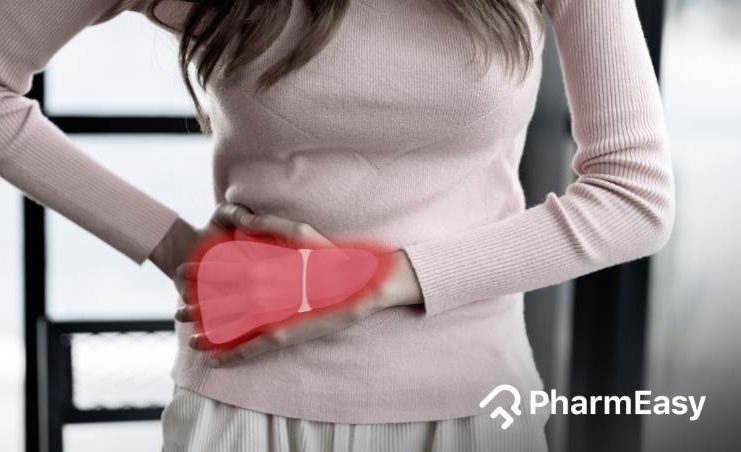
Did you know?
Fatty liver disease is a prevalent health condition that results from an excess buildup of fat in the liver. While some individuals may not experience any noticeable symptoms, the accumulation of fat can lead to severe liver damage in others. However, the good news is that fatty liver disease is often preventable and reversible through simple lifestyle modifications1.
Fatty liver disease is categorized into four grades based on the amount of fat buildup in the liver.
The following list gives you a gateway to eating foods that are good for you, if you have fatty liver disease:
Here is a list of foods to avoid if you have fatty liver disease:
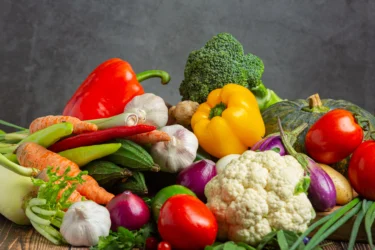
Include plenty of vegetables, fruits, whole grains, nuts, and legumes in your diet. These foods are rich in fibre, vitamins, and minerals, and low in saturated and trans fats, which can be beneficial for individuals with fatty liver disease.
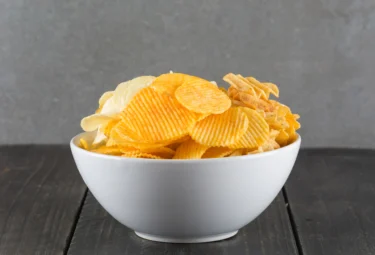
Processed foods, such as fast food, snacks, and baked goods, often contain high amounts of sugar, unhealthy fats, and additives that can worsen fatty liver disease. Processed foods often contain high levels of fructose, unhealthy fats such as trans fats and saturated fats, and additives like high fructose corn syrup, which can increase the amount of fat deposited in the liver and contribute to liver inflammation.
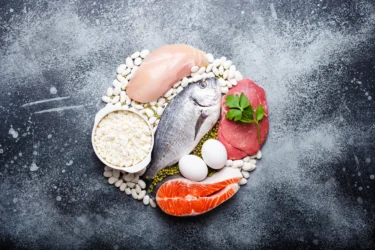
Opt for lean protein sources such as skinless poultry, fish, beans, and lentils over red meats and processed meats, which are high in saturated fats. These foods are high in protein, iron, and fiber.

Sugary beverages such as soda, juice, lemonade, and sports drinks can contribute to the development of fatty liver disease. Sugary and carbonated beverages contain high amounts of fructose and other sugars. When consumed in excess, these sugars are processed in the liver and converted into fat, leading to the accumulation of fat in the liver cells. Instead, opt for water, unsweetened tea, or coffee6.

Overeating can lead to weight gain and increase the risk of fatty liver disease. Be mindful of your portion sizes and consider using smaller plates or bowls to help control your portions. Large portion sizes can contribute to weight gain and obesity, which are risk factors for fatty liver disease. When we eat more calories than our body needs, the excess calories are stored as fat in the liver and other organs, leading to the development of fatty liver disease.
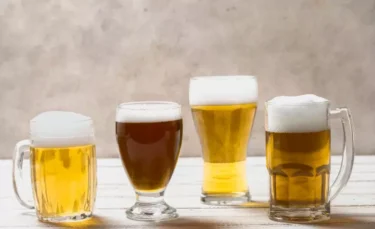
Drinking alcohol in excess can damage the liver and exacerbate fatty liver disease. If you choose to drink, do so in moderation and always consult with your healthcare provider first. It is important to note that the American Liver Foundation recommends complete abstinence from alcohol, especially for those with alcoholic fatty liver disease6.
Also Read: Grade 1 Fatty Liver: Causes, Symptoms, Diagnosis, and Reversal Strategies

Regular physical activity can aid in weight loss, improved insulin sensitivity, and a decreased risk of fatty liver disease. Try to exercise for at least 30 minutes, five days of the week, at a moderate level.
Remember, making simple lifestyle changes can go a long way in preventing and even reversing fatty liver disease. Always consult with your healthcare provider before making any significant changes to your diet or exercise routine1,4,5.
Another important fruit that you can add to your diet is grapefruit. Grapefruits are rich in naringenin, a flavonoid that has liver-protective properties (as per several lab studies). Adding grapefruits to your diet might help you avoid further liver damage8.
Dr. Rajeev Singh, BAMS
Here are some suggestions for a meal plan when you are following a fatty liver diet:
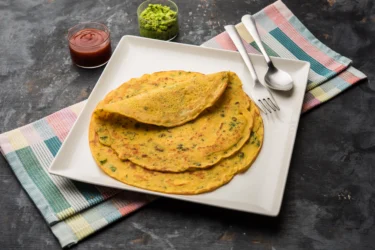
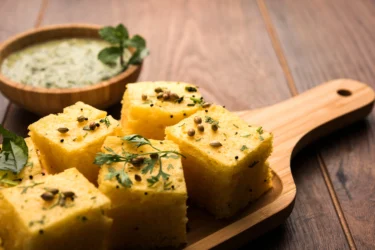
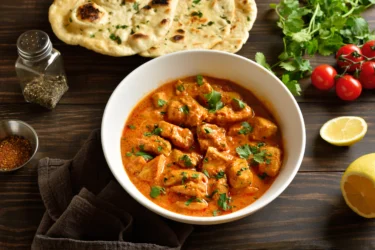
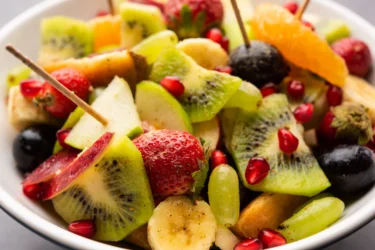
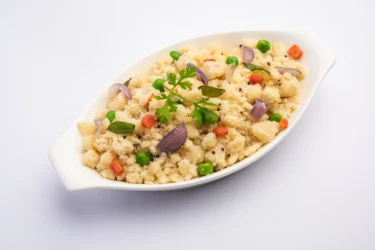
Remember to drink plenty of water throughout the day, and limit or avoid alcohol, sugary drinks, and processed foods. This meal plan is a suggested guideline for a fatty liver diet and should not be taken as medical advice.
It is recommended that you consult with a healthcare professional or a registered dietitian to create a personalized meal plan that meets your specific nutritional needs and dietary restrictions.
You can tailor it according to your diet, your specific needs and preferences, but try to focus on whole foods, lean protein sources, and plenty of fruits and vegetables while limiting your intake of processed foods, sugar, and unhealthy fats5.
Certain drugs can cause harm to the liver. If you are diagnosed with a fatty liver, it is important that you let your doctor be aware about the medicines you take. Some medicines can aggravate your liver condition and make the condition worse7.
Dr. Siddharth Gupta, B.A.M.S, M.D (Ayu)
Here are some tips to help manage fatty liver disease:
Also Read: Liver Fibrosis: What Is It, Causes, Symptoms & Treatment
Regular exercise, controlling diabetes, lowering cholesterol, and avoiding alcohol are other ways to manage fatty liver disease aside from diet.
The best treatment option for fatty liver disease depends on the underlying cause and severity of the condition and should be determined by a medical professional.
Fatty liver disease can be reversed in its early stages, but in more advanced cases, it can only be managed and not fully cured.
Yes, a vegetarian or vegan diet can help manage fatty liver disease. However, it is essential to ensure that you are still getting enough protein and other essential nutrients.
No, it is generally recommended to avoid alcohol altogether if you have fatty liver disease.
Disclaimer: The information provided here is for educational/awareness purposes only and is not intended to be a substitute for medical treatment by a healthcare professional and should not be relied upon to diagnose or treat any medical condition. The reader should consult a registered medical practitioner to determine the appropriateness of the information and before consuming any medication. PharmEasy does not provide any guarantee or warranty (express or implied) regarding the accuracy, adequacy, completeness, legality, reliability or usefulness of the information; and disclaims any liability arising thereof.
Links and product recommendations in the information provided here are advertisements of third-party products available on the website. PharmEasy does not make any representation on the accuracy or suitability of such products/services. Advertisements do not influence the editorial decisions or content. The information in this blog is subject to change without notice. The authors and administrators reserve the right to modify, add, or remove content without notification. It is your responsibility to review this disclaimer regularly for any changes.
Comments

Leave your comment...
You may also like
Comments